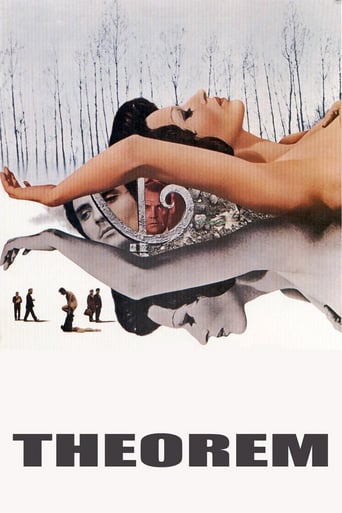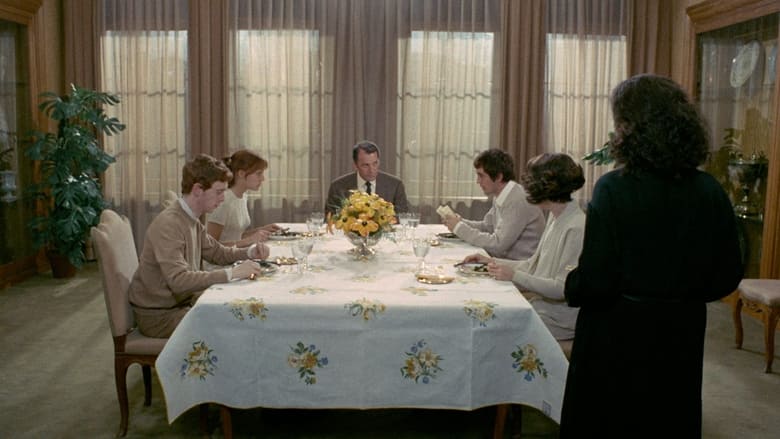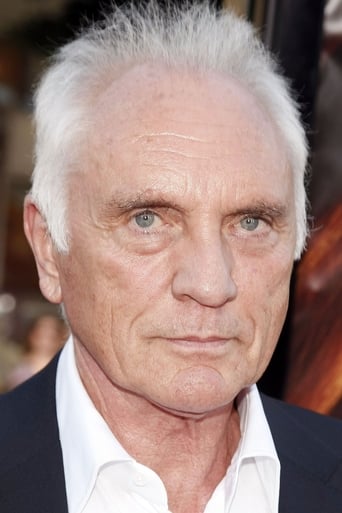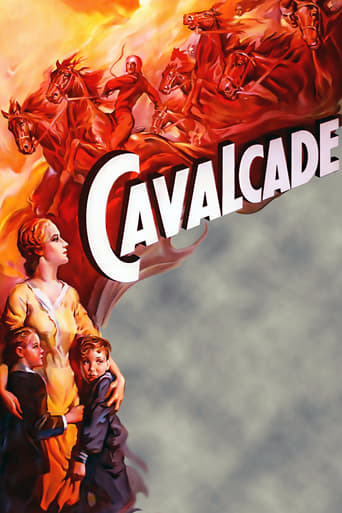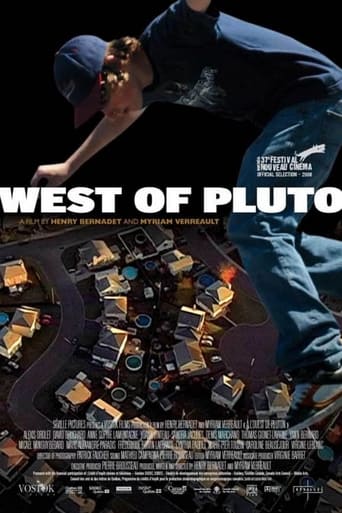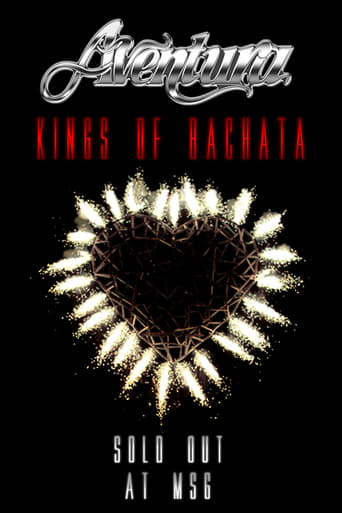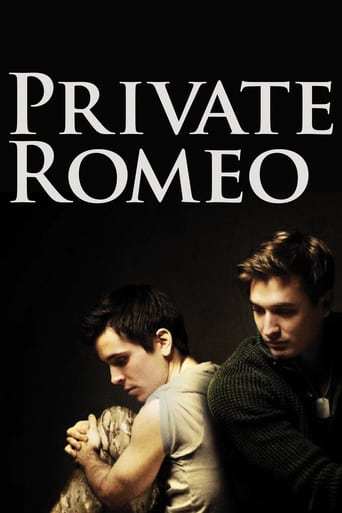Theorem (1969)
A wealthy Italian household is turned upside down when a handsome stranger arrives, seduces every family member and then disappears. Each has an epiphany of sorts, but none can figure out who the seductive visitor was or why he came.
Watch Trailer
Cast


Similar titles
Reviews
Wow! Such a good movie.
The film creates a perfect balance between action and depth of basic needs, in the midst of an infertile atmosphere.
This film is so real. It treats its characters with so much care and sensitivity.
The film never slows down or bores, plunging from one harrowing sequence to the next.
To me, this is the greatest of all the movies by Pasolini. It is visually stunning. The house itself, in which this silent drama takes place, is aesthetically close to perfection. The actors are moving and subdued. If you read a bit about Pasolini, and about what he wanted to achieve and what he struggled with during his lifetime, "Teorema" will make sense as his perfect statement. It is politically charged in every way, investigating Pasolinis own background as a member of the Italian "bourgeoisie". The stranger is a kind of modern, diabolical creature - extremely polite, attractive and silent, and seemingly intellectually superior to the members of the family. One by one they fall prey to him, as he challenges the sexually repressive environment in which they live. I would not recommend this movie as a starter, if you haven't seen any of his movies you should probably start with his "Life"-trilogy, i.e. Canterbury Tales, Decamerone or Arabian Nights. If you already know this provocative director and you're looking for his masterpiece, though, this is it.
Surpassing the new-realistic themes or those of past history Pasolini enters deep waters of philosophical questions of post- industrial society mainly on those concerning the upper class of those possessing the production means. It is a hard accusation there of unmeaning way of life. Now the technique and theme is surrealistic, reminding "maitre of surreal", Bunuel's, former film "The Exterminator Angel". In their big wealthy Milanese house they're all wandering without a meaning of existence. The son has no talent for the art of painting he wants to follow, the daughter has no love to stand upon, the mother the same. Dressed with high fashion clothes and hair-styled the same, she passes all time wandering in the big garden with no real feelings deep inside her. Her husband spends all time at his industry not paying any real attention to his family. Their maid as she represents the opposite to bourgeoisie class stays always silent serving them the dinner - a figure representing New Testament's "Happy those who have no mind". She is the one who can be saved as she returns to her village staying silent all day with no food or water. As the stranger arrives all are astonished by his beauty: His eyes, his smile, signs for the promised paradise they couldn't attend on this earth. But are they really attracted to his beauty or in the notion of salvation he carries? With this prophetic film Pier-Paolo Pasolini shows that there is no salvation in that chosen road: surrounding landscape is cold and desert if it is without the human joy of life. Where that joy is hidden? In the blue eyes of the visitor, in the open air smile and joy he carries with him. But as he has to leave the house all again is getting more and more obscure. The boy's paintings a mess on the walls of his room, girl's pessimism in not finding affection hidden in the old family's photo albums drives her to complete paranoia. Same for the father who wants to get rid of the factory offering it to the labor-workers, drives him to madness in Milan's rail-way station by getting rid of all his clothes. Same for the wife who is searching for love affairs in the streets with passing by strangers. The only one who can be saved is maid's returning to her village, gifted with miracle's power to cure diseases. Last scene with her body except the head in the ground an allegory of the lamb carrying all human sins. There is no way of salvation no matter if you are lamb or wolf. For the first the mud of this world, for the second the madness. Mud, madness is the crowing of that post-war industrial society Pasolini says. Contrary to Trilogy of Life looking at as an Ode to Life, this film is an Ode to Death. If you want something to be changed to that structure you find yourself powerless and mad to the end. Why this terrifying Teorema is in front us? Because - according to precedent Pasolini's works of the new-realistic school, is built on exploitation of other people, on no-mercy rules of western societies which condemns people living in poverty, growing aversion between them. The building you construct has no strong basis it's going to fall, he says to us. Finally a bell is ringing? An SOS bell. A pessimistic sound for society we all live. Teorema is a puzzle that can't be solved by human race of modern times.Only if you have salvation angel besides you, who by all means, you keep it all time close to you, salvation could be earned.
Pier Paolo Pasolini's "Teorema" had me dumbfounded! It was one of those rare instances where I was unable to formulate a clear opinion of what I thought about it. For one, this minimalist picture from the controversial filmmaker has "art-house" written all over it. Yes, there is extreme minimalism, very little dialog (it seems the number of actual spoken words in the film is about 923!). This almost silent film is allegorical rife with symbolism and religious connotations, and may not be a very interesting subject matter for those looking at mainstream cinema, that is for sure! Terence Stamp is "The Visitor", a mysterious stranger who once visits the mansion of a rich family of four. The man of the house is Paolo, a rich businessman who owns a factory, and then there's his awkward son, a daughter, a beautiful wife who is sexually repressed and a scary-looking maid. In the next few days that pass, this visitor has sexual encounters with each of the inhabitants of the house! In a way, he "seduces" them. And almost as suddenly as he appears, he soon takes leave of them, leaving them in a state like never before! All of these people he "touched" exhibit marked changes in their lives, of a different level altogether! The "consequences" forms the crux of this strange film and paves way for detailed discussion! What makes Pasolini's film so important is the daring concept that Pasolini presents to his viewers with a script set in the contemporary world. From what I understand, The visitor is supposed to be a God-send or an angel who influences the members of the house in one way or another. Why "sexually" is a good question, but that depends on how you see it. Is it the touch of God, or the Devil's seduction? Perhaps it is symbolic of a "close encounter with God"? So what exactly does God do to these bourgeois individuals? Apparently he makes them see beyond their pretentious cocooned life. They all go through a self-realization phase, which they all confess one by one to the Visitor when it is time for him to leave. But he isn't there to see the changes. Are these changes always positive? Does being "blessed" always lead to happiness? Or is there another side to it? Pasolini, through his seemingly simple yet highly complex allegory poses these ambiguous questions, which likely polarized his audiences, based on their religious beliefs! Being an atheist I wasn't particularly offended or overwhelmed with the subject, but I was definitely intrigued by how drastically different this film and its viewpoint is! Pasolini's technique of story-telling is poetic! It is almost like Pasolini deliberately chose the visual style as exists in the film to give it a meditative form. Long takes, solitude, mostly gentle atmosphere, intermittent random scenes of a vast empty desert, the presence of a radiant light just before the visitor appears, all tactfully done! The visuals are also enchanting, the cinematography is beautiful, with the colours changing from sepia (in the beginning during the introduction of the characters, perhaps to show their 'ordinary' life?) to vividly colourful (a marked change with the introduction of the "visitor"?). It is then, mostly on the technical front and the handling of the film with its layered theme that makes "Teorema" most watchable.Where it falters is in some (only a couple or three) haphazard sequences here and there, and in the tepid acting from the actors playing the son and the daughter. I don't know if it was intentional but the daughter, Odetta (Anne Wiazemsky) who also appeared in Robert Bresson's "Au Hasard Balthazar" delivers what could be one of the most wooden acting performances I've seen! At one point it even becomes slightly apparent that she is reading her lines from cue cards!! The son, Pietro is played by Andrés José Cruz Soublette also seems somewhat awkward, but maybe his acting reflects his character who behaves like that owing to being a closeted homosexual! The finest acting then comes from Terence Stamp, even though he doesn't have much to do except give mysterious smiles once in a while and appear compassionate! A close second best actor in the film is the beautiful Silvana Magnano, the lady of the house. Her Lucia's perplexed state of mind is wonderfully portrayed by the actress. Also impressive is Laura Betti as Emilia, the maid. Laura looks and acts the weird Emilia quite earnestly.But how does one eventually evaluate and rate something as flummoxing as "Teorema"? Why is it even called that anyway? ('Teorema' means 'Theorem') There are views that the structure of the film itself and the psychological transformation of all characters follow a single formulaic structure! The film doesn't boast of great acting, neither is it an intimate character portrait. Not all characters are dug deep into. The subject matter is not what one would fall in love with, but it sure is extremely interesting! But in spite of this, there is something about "Teorema" that makes it worthwhile. While the visuals and the characters haunt your memory long after the film is over, the happenings in the narrative will give you something to ponder about. It is not a film one may go ga-ga about, but can one ever forget having watched "Teorema"? Hell, no! Score: 8/10.
It is like the sequel of Pasolini's "Gospel According to Saint Matthew". It is a direct transposition of that young man who is bringing love to the world in the class-struggle-ridden city of Milano. If love came to a bourgeois family what would happen? The mother would discover what she has never experienced and she would become an insatiable love seeking, we mean of course sex chasing, woman picking young students in the streets, male of course, to have a quick experience no matter where, no matter how, provided it is quick and complete.The daughter would just get catatonic after the discovery of that physical love she did not know before and she can't imagine with anyone else after having had that relation with the angel of love, the archangel Gabriel of course. She will end up being taken away to some institution.The son will have discovered the love he was looking for but that makes him different and he does not want to be different, so he will just promote his difference to the status of art and he will start painting beautiful abstract things with no resemblance to anything at all, in one word his own desire for the forbidden in society but a dream that is allowed by that angel of love, the archangel Gabriel of course.The maid will start eating stinging nettles and making miracles, floating in mid air over the roof and being worshipped as a saint able to deliver the cure to all evils. And that will have to stop one day and on that day she will have herself buried in some kind of building site to disappear in her own tears under tower blocks.Finally the father will be the one who shows the way to salvation. He will get rid of his factory and will give it to the workers. The class struggle will win and the workers will be able to establish the dictatorship of the proletariat, a hammer and a sickle, or vice versa in Italy. And then he will be able to answer the call of some young male well endowed angel and to undress in Milano's main train station, get rid of all superficial appearances and finally follow his angel of love into the desert, yes the desert, because that's all there is for the bourgeoisie and then he will realize his mistake, he will realize one must never yield to class struggle because it is an impasse, but all the same the command of Jesus to the rich to get rid of their riches and distribute them to the poor and then follow him is a blind alley, an alley for the blind, an alley that leads nowhere at all except perdition.Just like Jesus brought love to Jerusalem and ended up on the cross, betrayed by his own disciple, capitalism is an impasse but negating capitalism is another impasse. There is no way out of that vision of society cut in too without any love.And that's why the film has aged tremendously. Class struggle or even social war, liberation wars that end up in pure terrorism, the belief that the world can be cut in two antagonistic halves lead to nowhere. It is a myth, it is a dream, not even a utopia because it does not bring liberation but it brings totalitarianism, dictatorship, terrorism, including the civilized terrorism of that new age theory that society is a set of interconnected networks and it is enough to drop a stone, or a bomb, in one nodal point to paralyze the whole system, like blocking the flow of gas and diesel, to bring society dons on its knees in about four weeks.The four weeks that are supposed to shake the world and end up in failure and blood or frustration like with the Tamil Tigers, the FARCs, Ben Laden, the ETA in Basque country, and all other pirates in the world. The world is not divided in two antagonistic halves. To believe that is to lead everyone to the desert, the absolute waterless, cool-less, food-less desert and not for forty days but forever and ever. By the way that vision of Jesus and Christendom is absolutely old fashioned, passé, dead.Pasolini's message in 1968 was absolutely dramatic and realistically pessimistic. How could anyone believe the extreme communistic, Trotskyite, anarchistic movements were going to try to take over and some will support that, not seeing it is pure feudalism and these new heroes are nothing but war lords. And when they try to behave like professional trade-union leaders they become amateurish generals of social war, class against class.Dr Jacques COULARDEAU, University Paris 1 Pantheon Sorbonne, University Paris 8 Saint Denis, University Paris 12 Créteil, CEGID

